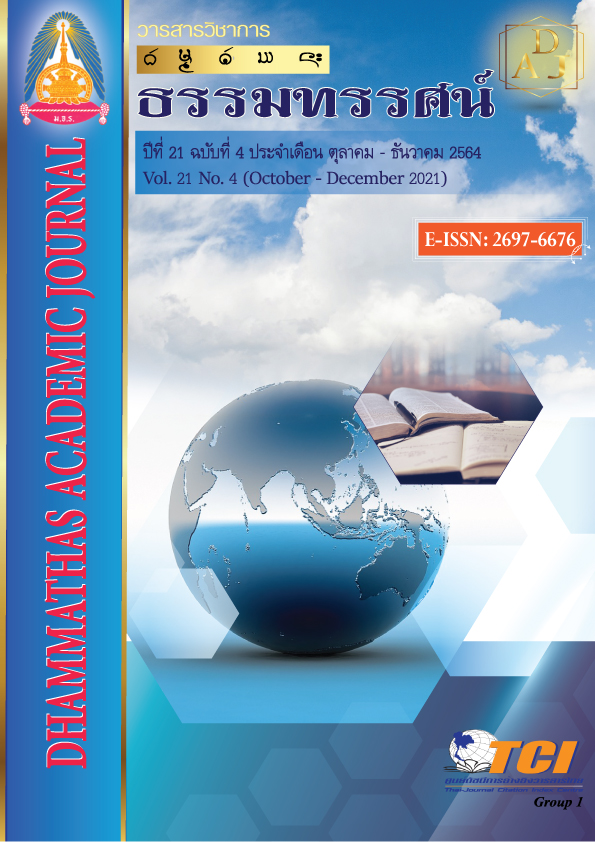The Scenario of Thai Vocational Education in the Next Decade (2022-2031)
Main Article Content
Abstract
The purposes of this study were: 1) to study the vocational education conditions of the Office of the Commission of Thai Vocational Education by interviewing 21 qualified specialists using semi-structured questionnaires, and 2) to define the scenario of Thai vocational education in the next decade (2022-2031), using the same sample group through EDFR technique. The research tools were semi-structured interviews form and Likert’s 5 scale questionnaires. In this regard, trends which had 3 qualification were selected. Firstly, median of the trend was more than 3.50. Secondly, interquartile range of the trend was not over 1.50. Thirdly, specialists’ congruence percentage of the trend was equal to or over 85 percent. The statistics employed for analyses of data included the percentage, mean, median, mode and inter-quartile range.
The research findings revealed that:
1. There were various problems facing Thai Vocational Education not only in the input aspect, but also in the process and the output aspects.
2. The study on the scenario of Thai vocational education it was found that there were 39 possible trends for input aspect, 62 possible trends for process aspects, Lastly, and 22 possible trends for output aspect.
Article Details
References
จิราภรณ์ ปกรณ์. (2557). AR (Augmented Reality) เทคโนโลยีโลกเสมือนผสานโลกแห่งความจริง. เข้าถึงได้จาก http://www.scimath.org/article-technology/augmented reality
จงสถาพร ดาวเรือง. (2560). อนาคตภาพการอาชีวศึกษาระบบทวิภาคีของสถานศึกษาสังกัดสำนักงานคณะกรรมการการอาชีวศึกษาในทศวรรษหน้า (พ.ศ. 2559-2569). (วิทยานิพนธ์ปรัชญาดุษฎีบัณฑิต). ฉะเชิงเทรา: มหาวิทยาลัยราชภัฏราชนครินทร์.
จุมพล พูลภัทรชีวิน. (2552). ปฏิบัติการวิจัยอนาคตด้วย EDFR. เอกสารประกอบการอบรมสัมมนาวิชาการ เรื่อง การวิจัยอนาคต. ขอนแก่น: คณะศึกษาศาสตร์ มหาวิทยาลัยขอนแก่น.
สาโรจน์ ขอจ่วนเตี๋ยว. (2562). การพัฒนารูปแบบการบริหารสถานศึกษาอาชีวศึกษาประเภทช่างอุตสาหกรรม ภายใต้นโยบายประเทศไทย 4.0. เข้าถึงได้จาก http://www.stc.ac.th/stc/data/research/thailand40.pdf
สำนักงานคณะกรรมการการอาชีวศึกษา. (2552). แนวการจัดการศึกษาตามมาตรา 8 พระราชบัญญัติการอาชีวศึกษา พ.ศ. 2551. กรุงเทพฯ: กระทรวงศึกษาธิการ.
สำนักงานเลขาธิการสภาการศึกษา (2558). สภาพการจัดการศึกษาเฉพาะทางในประเทศไทยปี 2556: การผลิตบุคลากร สำนักวิจัยและพัฒนาการศึกษา. กรุงเทพฯ: พริกหวานกราฟฟิค.
Foster, Gug. (2021). Foster, Gug. (2021). The Future of Vocational Education: Flexibility and Choice. Retrieved from https://www.ocpathink.org/post/paycom-ceo-vowed-to-come-after-the-ocpa
Hoy, W. K. & Miskel, C. G. (2013). Educational Administration: Theory, Research, and Practice. (6th ed). Boston: McGraw - Hall.
Lunenburg, F. C., & Ornstein, A. C. (2021). Educational Administration: Concepts and Practices. (7th edition). English: Wadsworth Publishing.
Macmillan, Thomas T. (1971). The Delphi Technique, Paper Presented at The Annual Meeting of the California Junior College Associate Committee on Research and Development, Monterey, California. (May 1971), 3-5.
Owens, R. G. (1998). Organizational Behavior in Education. (6th ed.). Boston, MA: Allynnd Bacon.
Rampersaud, Cindy. (2020). The future of skills and vocational education in the shifting employment and careers landscape. Retrieved from https://www.fenews.co.uk/exclusive/the-future-of-skills-and-vocational-education-in-the-shifting-employment-and-careers-landscape/

